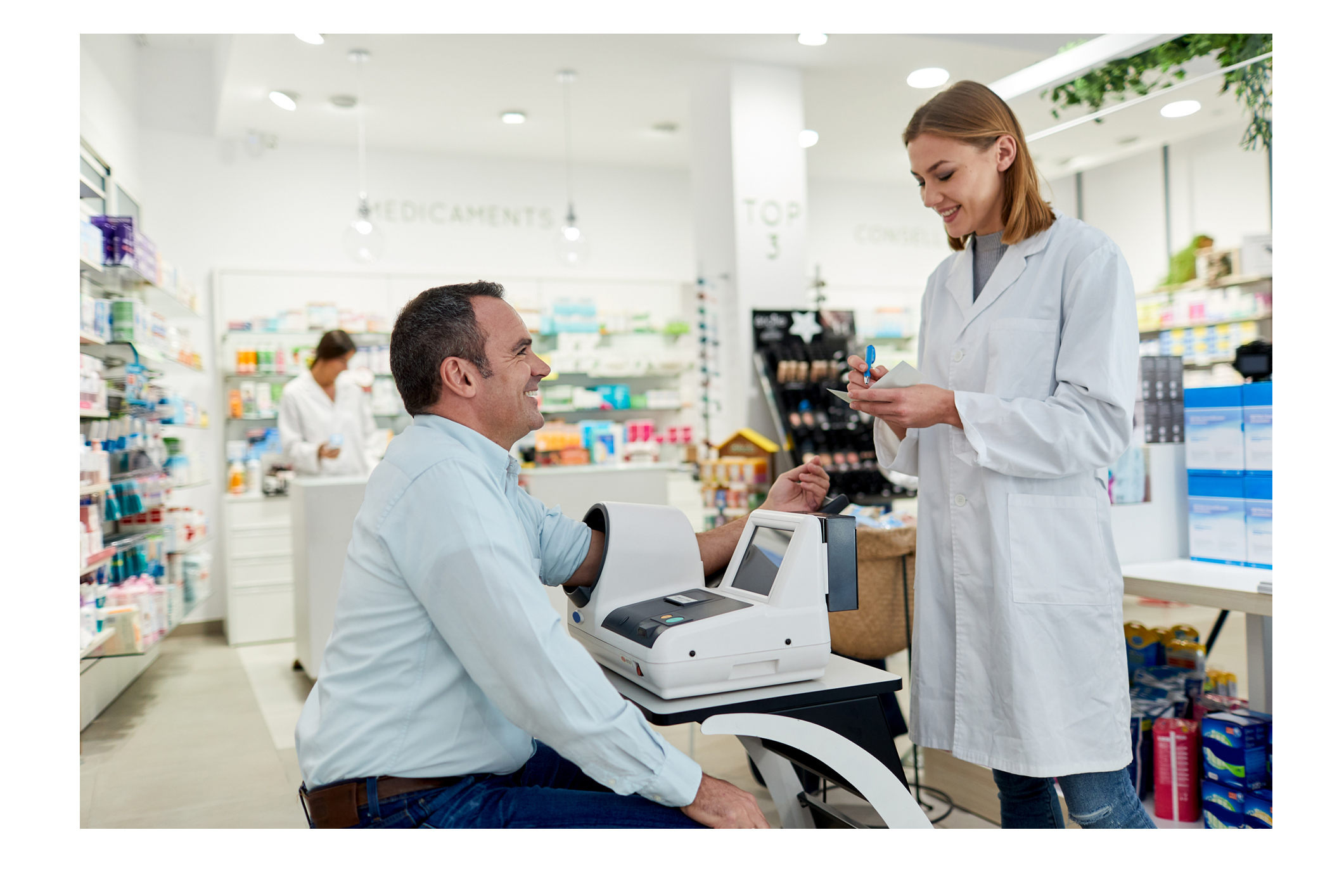Community Pharmacies' Impact on Patient Health Literacy

Promoting health literacy is one of the most important things community pharmacies can do for their patients. Defined as the ability to understand basic health information to make safe and appropriate clinical decisions, health literacy can play an incremental part in the well-being of patients.
As trusted healthcare providers, pharmacists are often relied on to educate patients about their health and provide professional recommendations. By strengthening health literacy programs and prioritizing health education, pharmacies can improve patient outcomes and adherence. Keep reading for more on the importance of health literacy in the pharmacy.
Addressing Health Literacy at Your Community Pharmacy
It may be surprising that most adults have limited health literacy. Only 12% of U.S. adults are considered to have proficient health literacy, which is considered the ability to understand basic medical terms, health insurance terms, and to be able to correctly interpret a prescription label. Patients across all genders, ethnic groups, and education levels are labeled as having basic or below basic health literacy.
Community pharmacies have the opportunity to improve health literacy through educating and building relationships with their patients. Often, a pharmacist is the last clinical professional a patient sees before taking their medication. This gives pharmacists the power to educate patients on their medications and answer any questions that the patient might have.
Interactions involving health literacy and health education can help prevent negative drug interactions, manage drug side effects, and improve medication adherence. When patients understand their medications, including their doctor’s instructions and potential side effects, they are more likely to take their medicine as prescribed.
Steps for Encouraging Health Literacy in Your Pharmacy
1. Help Patients Understand Their ConditionUnderstanding health starts at the beginning of the treatment process. When a patient receives a diagnosis, they may be overwhelmed and uncertain of what is needed to treat their condition. Pharmacists should take the time to explain their condition and how their medication will help treat it, while also directing the patient back to their doctor for additional questions about their condition.
2. Educate Patients on Their MedicationsReviewing prescription information with patients before they leave the pharmacy will ensure they understand what the medication does, when to take it, and when to come back for a refill. By taking this step, pharmacists can prevent misuse, treatment abandonment, and dangerous drug interactions. Patients may not be interested in learning more about their medication when they pick up their prescription, but it is important to let them know the pharmacist is available if needed.
3. Explain Insurance and Out-of-Pocket CostsHealth insurance plans can be confusing for patients with low health literacy. By breaking down the jargon associated with insurance, patients can better understand how their treatment is paid for. This will help them improve their health literacy and manage drug costs.
4. Ask Patients to Give a RecapAsking patients to reiterate what has been explained to them can help with overall health literacy. Having them repeat in their own words guarantees that they can efficiently take care of themselves. It also allows pharmacists to clear up any miscommunication in the process.
Resources Community Pharmacies Can Provide
Patients might need additional support after the initial conversation. Providing resources for them to utilize after they leave the pharmacy will assist in promoting health literacy. Here are some ways to help your patients stay aware of their health:
- Medication reminders, refill requests, and deliveries through mobile phones
- Flyers, pamphlets, and other visual aids to supplement education
- Bilingual staff members to communicate with patients who speak different languages
- Phone or virtual access to staff for questions and/or assistance
Your pharmacy may already have some of these tools through your pharmacy management system. Utilizing them to your advantage can provide your patients with the best health outcomes. With community pharmacy’s impact, more Americans can reach proficiency with health literacy and make informed decisions about their health.
Outcomes® is proud to offer the tools and resources community pharmacies need to promote health literacy. Contact us today to learn more about how our mobile applications and 360 Solution helps community pharmacies engage and educate their patients.






